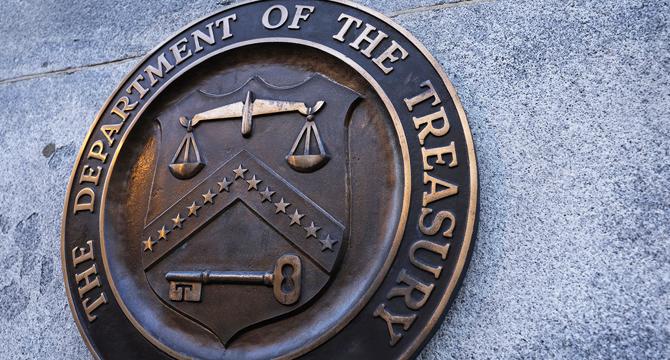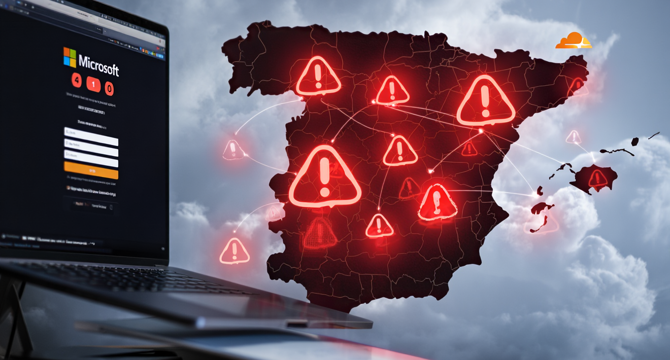Cyber Crime News
Securityaffairs
154

Image Credit: Securityaffairs
Hunters International ransomware gang shuts down and offers free decryption keys to all victims
- Hunters International ransomware gang has announced its shutdown, citing unspecified 'recent developments' and acknowledging its impact.
- The group is offering free decryption software to all companies impacted by their ransomware as a gesture of goodwill.
- There is speculation that Hunters International may rebrand itself into a new group called World Leaks to avoid law enforcement tracking.
- The group emerged after the Hive gang's infrastructure was seized, with Hunters International suspected to be a rebrand of the Hive ransomware gang.
Read Full Article
9 Likes
Blackenterprise
30

Image Credit: Blackenterprise
Why The Health Care Industry Is One Of The Biggest Cybercrime Targets
- Health care institutions are top cybercrime targets due to valuable information and weak security.
- In 2023, 725 large data breaches occurred, compromising over 133 million records.
- Hackers target health sector due to high stakes, valuable data, and delayed detection.
Read Full Article
1 Like
Securityaffairs
388

Image Credit: Securityaffairs
Security Affairs newsletter Round 531 by Pierluigi Paganini – INTERNATIONAL EDITION
- North Korea-linked threat actors spread macOS NimDoor malware via fake Zoom updates.
- Google fined $314M for misusing idle Android users’ data.
- Cybercriminals target Brazil in a data breach affecting 248,725 people.
- Denmark introduces new copyright law to protect against deepfakes.
Read Full Article
23 Likes
Medium
260

The Future of Cybersecurity: AI-Powered Detection of Malware and Phishing
- Malware and phishing are major cyber threats targeting individuals and organizations, aiming to steal data or manipulate users into revealing sensitive information.
- Attackers are using advanced techniques like polymorphic malware and social engineering, challenging traditional detection systems.
- AI, particularly when using machine learning and NLP, enhances cybersecurity by quickly analyzing data for anomalies, detecting phishing links, and learning from new threats.
- While AI presents significant advantages in detecting and responding to cyber threats, integrating it with human expertise and robust security policies will be crucial for staying ahead in cybersecurity.
Read Full Article
15 Likes
Dev
201

Image Credit: Dev
The Rise of AI-Generated Phishing Websites: How Hackers Are Weaponizing Generative Tools
- Phishing attacks have evolved with the use of generative AI tools to create fake websites and URLs quickly and at scale.
- AI-powered phishing sites hosted on legitimate infrastructure make traditional detection challenging for defenders.
- Real-world impacts include cloned credential sites, deepfake-enhanced attacks, and homograph domain spoofing.
- AI amplifies the phishing threat by enabling fast and personalized attacks, emphasizing the need for proactive defense measures.
Read Full Article
12 Likes
Bitcoinist
329

Image Credit: Bitcoinist
Over 40 Fake Crypto Wallet Extensions on Firefox, Are Your Funds at Risk?
- A cybersecurity firm, Koi Security, uncovered over 40 fake Firefox browser extensions designed to steal crypto wallet credentials.
- These malicious extensions impersonated popular crypto wallet tools like MetaMask, Coinbase, Trust Wallet, and others, allowing attackers to access sensitive information.
- The campaign, active since April 2025, is sophisticated and long-lasting, with extensions uploaded as recently as last week, posing a significant threat to users' assets and data.
- The report suggests that users stick to official wallet recommendations, verify developer information on add-on pages, and be cautious when granting permissions to browser extensions.
Read Full Article
19 Likes
Medium
304
Image Credit: Medium
Artificial Intelligence (AI) in Digital Forensics: Elevating Cybercrime Investigations
- Digital forensics plays a crucial role in investigating cybercrimes like hacking and data breaches.
- AI automation enhances data processing, threat detection, and accuracy in forensic analyses.
- Key technologies include ML, NLP, Computer Vision, Deep Learning, and Behavioral Analytics.
- AI aids in cybercrime tracing, e-discovery, mobile forensics, dark web monitoring, and data breach analysis.
- Advantages of AI in digital forensics include speed, scalability, accuracy, and real-time analysis capabilities.
Read Full Article
18 Likes
TechCrunch
80

Image Credit: TechCrunch
Ransomware gang Hunters International says it’s shutting down
- Ransomware gang Hunters International announced on its dark web page that it is shutting down without specifying reasons.
- The hackers are offering free decryption keys to all companies impacted by their ransomware to help recover encrypted data.
- Hunters International has had various victims, including a U.S. cancer center and the U.S. Marshals Service, despite the agency denying being hacked.
- There were indications as early as April that the group might transition to a new entity called World Leaks, using different ransomware software and hosting a new site.
Read Full Article
4 Likes
Securityaffairs
12

Image Credit: Securityaffairs
Europol shuts down Archetyp Market, longest-running dark web drug marketplace
- Europol, in collaboration with German authorities, has shut down Archetyp Market, the longest-running dark web drug marketplace.
- The operation spanned six countries and resulted in the arrest of the market's administrator in Spain, along with targeted actions against top vendors in Sweden.
- Archetyp Market operated for over five years, attracting over 600,000 users globally and facilitating drug transactions totaling at least EUR 250 million.
- The takedown was part of a significant international effort involving around 300 officers and led to the seizure of assets worth €7.8 million, delivering a blow to anonymous drug trafficking on the dark web.
Read Full Article
Like
Securityaffairs
21

Image Credit: Securityaffairs
Kelly Benefits data breach has impacted 550,000 people, and the situation continues to worsen as the investigation progresses
- A data breach at Kelly Benefits has impacted 550,000 people, with the number of affected individuals growing as the investigation continues.
- Benefits and payroll solutions firm Kelly Benefits confirmed the breach, revealing that more individuals were affected than originally believed.
- The breach, which occurred in December 2024, exposed sensitive personal data like names, SSNs, medical, and financial data.
- The latest update from the company disclosed that over 553,660 individuals were impacted, and affected individuals are being offered free credit monitoring and identity protection services.
Read Full Article
1 Like
Silicon
245
Image Credit: Silicon
Qantas Confirms Customer Data Stolen By Hackers
- Australian airline Qantas experienced a cyber-attack compromising customer data of about 6 million individuals.
- The breach affected a third-party platform used by Qantas' customer contact centre, including customer names, email addresses, and phone numbers.
- No payment card details or login credentials were compromised in the attack, and Qantas has taken steps to secure its systems.
- The incident possibly linked to the hacking group Scattered Spider, known for targeting various sectors including airlines, using social-engineering methods for gaining unauthorized access.
Read Full Article
14 Likes
Securityaffairs
272

Image Credit: Securityaffairs
U.S. Sanctions Russia’s Aeza Group for aiding crooks with bulletproof hosting
- The U.S. Treasury sanctions Russia's Aeza Group and affiliates for aiding cybercriminals through bulletproof hosting services.
- Bulletproof hosting services allow cybercriminals to host malicious content and evade shutdown attempts by authorities.
- The sanctions target Aeza Group subsidiaries and key figures involved in managing cybercrime-supporting infrastructure.
- The U.S., UK, and Australia recently sanctioned another Russian bulletproof hosting provider, Zservers/XHost, for supporting ransomware operations.
Read Full Article
16 Likes
Siliconangle
391

Image Credit: Siliconangle
Cofense uncovers dramatic rise in phishing attacks using Spain’s .es domains
- Cofense reports a significant increase in malicious activities using Spain’s .es top-level domain for phishing attacks, with a 19-fold surge from Q4 2024 to Q1 2025.
- Threat actors are utilizing .es domains to host second-stage phishing pages, primarily impersonating Microsoft services like Outlook alongside other companies like Adobe, Google, and Docusign.
- About 99% of the identified malicious .es domains are hosted on Cloudflare's infrastructure, potentially raising concerns about the ease of deploying malicious content using modern tools.
- Cofense advises organizations to enhance their detection strategies, focusing on subdomain monitoring and brand spoofing detection, as domain abuse patterns serve as early warning signs for evolving threat activities.
Read Full Article
23 Likes
TechCrunch
72

Image Credit: TechCrunch
Qantas hack results in theft of 6 million passengers’ personal data
- Qantas airline reported a data breach on June 30, exposing six million passengers' personal information.
- The breach occurred when a cybercriminal targeted one of Qantas' call centers, stealing names, emails, phone numbers, dates of birth, and frequent flyer numbers.
- This incident follows a series of airline hacks, with Scattered Spider group allegedly involved. WestJet and Hawaiian Airlines were also recently targeted.
- Mandiant advised airlines to be wary of social engineering attacks, though it's unclear if the Qantas hack is linked to Scattered Spider.
Read Full Article
4 Likes
TechDigest
38

Image Credit: TechDigest
Amazon Prime Day Warning: over 120,000 scam sites target bargain hunters
- With Amazon Prime Day approaching on July 8, shoppers need to beware of over 120,000 scam sites impersonating Amazon.
- Cybercriminals are taking advantage of the extended four-day sales event to launch phishing attacks, distribute malware, and sell fake goods.
- NordVPN reports a surge in malicious websites targeting consumers, highlighting the importance of caution when clicking on deals or sharing personal information.
- Experts recommend shopping directly on Amazon's official website, verifying secure URLs, and avoiding deals that seem too good to be true to prevent falling victim to online scams.
Read Full Article
2 Likes
For uninterrupted reading, download the app